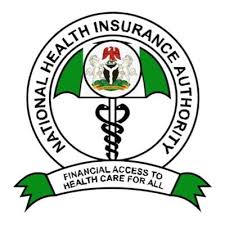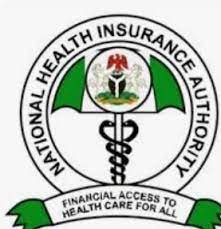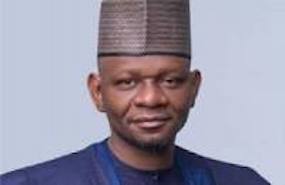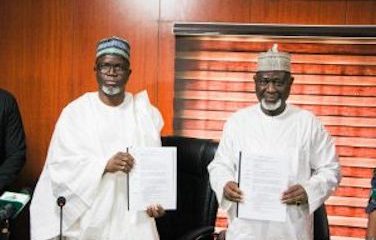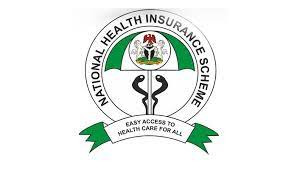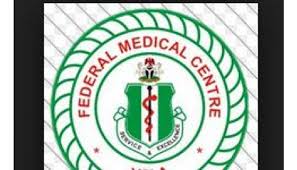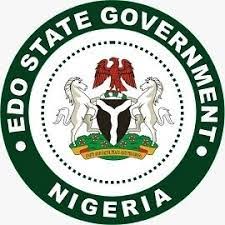Health
NHIA Introduces Programme to Ensure Cheap, Availability of Drugs
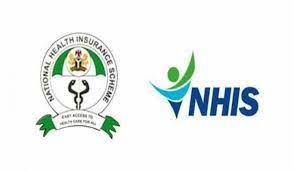
The National Health Insurance Authority (NHIA) on Tuesday in Abuja said it has introduced a programme called “drug registered hitchhiking medicine supply”.
Prof. Mohammed Sambo, Director-General of NHIA, while briefing newsmen said the programme was to ensure the availability of drugs in the market and make them less expensive.
He said the National Health Bill which was assented to by President Muhammadu Buhari was a critical element of the nation’s development.
President Buhari had on May 21 signed the National Health Insurance Authority Bill 2022 into law, with the new legislation repealing the National Health Insurance Scheme Act 2004.
The President had during the signing said the new law makes provisions for the setting up of a trust fund.
The trust fund is to ensure the coverage of 83 million poor Nigerians who cannot afford to pay premium as recommended by the Lancet Nigeria Commission.
Sambo said the drug registered hitchhiking medicine supply condition will ensure the availability of drugs in the market.
“It will also ensure that all the drugs are permitted in health insurance company system to bring down the cost of drugs,’’ he said.
Sambo said the introduction of the branded drugs under the NHIA drug supply initiative would address the perception that drugs prescribed for enrollees by health care providers are cheap, ineffective drugs.
He said that the NHIA Act brought renewed prospects for the delivery of effective health insurance in Nigeria, fundamentally resetting the ecosystem.
According to him, with the Act, Nigerian health insurance has become mandatory.
He said the Act empowered the authority to see to it that all Nigerians and legal residents have health insurance.
“This is a complete departure from the previous law that made health insurance optional.
“The authority will co-exist with state systems and other stakeholders.
“The law provides that NHIA will promote, regulate and integrate through the ecosystem.
“It also provided for the establishment of vulnerable Group Fund and outlines sources of funding for it,’’ Sambo said.
According to him, the law imposes a telecoms tax as a source of funding.
“Currently, the most important work before us is the strategic implementation of the NHIA Act for the benefit of Nigerians,’’ he said.
The D-G said that the recent visits of a high-level mission from the World Health Organsation (WHO) were as a result of the Act.
He said a team of health-financing experts came and assessed the country’s preparedness.
“At the end they were satisfied and pledged their support in relevant areas.
“The team will help the country in the area of capacity-building and technology,’’ the NHIA director-general said.
Sambo also said the NHIA was discussing with relevant authorities in finance to enable the authority achieve its objectives.
He disclosed that the authority was also doing advocacy so that people would understand the implications and benefits of health insurance.
Sambo then urged the media to assist with proper education and advocacy on health insurance.(NAN)
Health
Stakeholders Call for Better Menstrual Hygiene To Boost Health
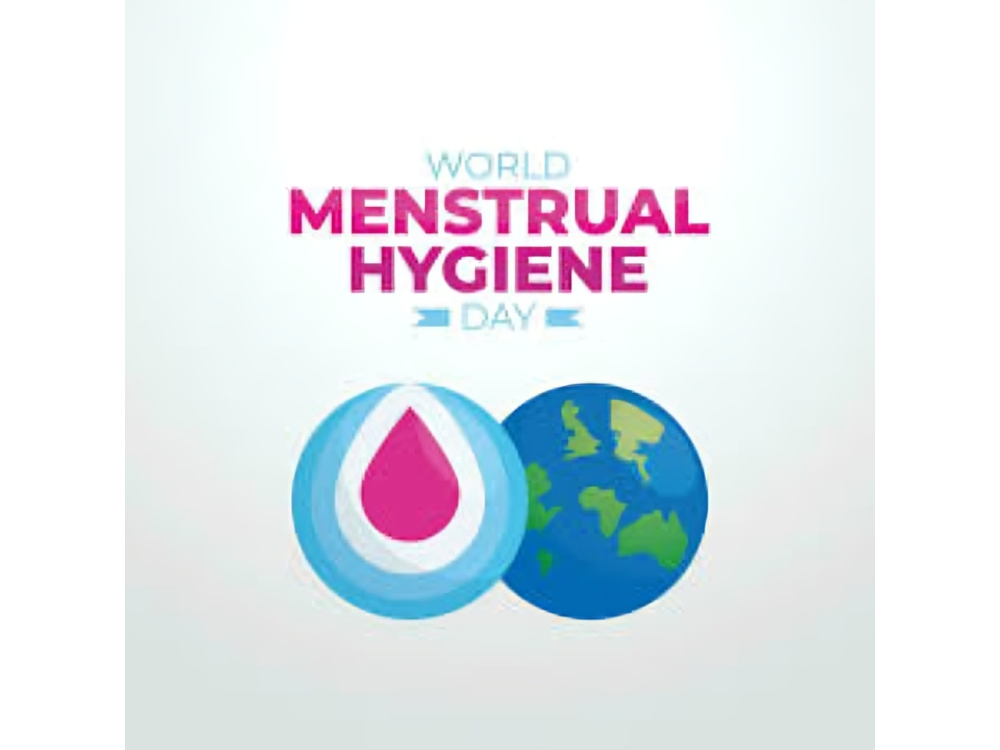
Stakeholders have stressed the need for increased awareness and improved practices around menstrual hygiene, particularly to support better health outcomes and dignity for girls in underserved communities.
They made the call on Wednesday in Abuja ahead of the 2025 Menstrual Hygiene Day, commemorated globally every May 28 to address inequalities in menstrual health and hygiene.
The event was organised by Tabitha Cumi Foundation (TCF) under its Always Keeping Girls in School (AKGIS) project, with support from Charities Aid Foundation (CAF America).
Mrs Tayo Erinle, Executive Director of TCF, said menstrual hygiene remained a critical yet often overlooked aspect of reproductive health, especially among adolescent girls.
“Many girls live in households where no one provides sanitary pads or pays attention to that part of their lives.
“It happens monthly, and every girl deserves dignity and support,” she said.
Erinle added that more than 1,600 marginalised girls across 32 junior secondary schools in the FCT, Lagos, and Benue states were empowered through puberty education and menstrual hygiene management under the AKGIS project.
She said beneficiaries also received a one-year supply of Always sanitary pads and emergency kits.
“The project has boosted the girls’ confidence.
“Menstruation was once shrouded in secrecy, stigma, and confusion for many. Now, with access to correct information and education, they feel empowered,” she added.
Dr Adedolapo Fasawe, Mandate Secretary for the Health Services and Environment Secretariat, emphasised the importance of educating youths on reproductive health.
Represented by Dr Ruqayya Wamakko, Executive Secretary of the FCT Primary Health Care Board, she called for more sensitisation efforts to encourage young people to use health services in primary health centres.
“We give health talks, visit schools, form school clubs, and teach students how to care for themselves, maintain personal and menstrual hygiene, and stay safe,” she noted.
Mrs Nwakonye Onyirechi, Assistant Chief Investigative Officer in the Women and Children Department of the National Human Rights Commission (NHRC), reiterated the commission’s commitment to protecting the rights of the girl child.
“We go to schools to sensitise girls to their rights and encourage them to speak up when their rights are violated,” she said.
Dr Safiya Tamanuwa, Deputy Director of the Placement and Gender Unit at the Universal Basic Education Commission (UBEC), commended TCF for its support toward improving the health and well-being of schoolgirls.
Highlights of the event included the distribution of sanitary pads and kits, a literary presentation, and expert-led health talks.(NAN)
Health
Group urges Nigerians to embrace healthy habits to prevent diseases

The Society of Lifestyle Medicine of Nigeria (SOLONg) has advised Nigerians to embrace healthy preventive lifestyle habits to prevent the root causes of chronic and lifestyle-related diseases.
The President of SOLONg, Dr Moyosore Makinde, gave the advice in an interview in commemoration of the “Global Lifestyle Medicine Week” on Tuesday in Lagos.
NAN reports that the Global Lifestyle Medicine Week, taking place from May 18 to May 24, 2025, has the theme “Celebrating Healthy Habits: Inspire Change with D.
R.E.A.M.S.”Makinde, also an International Board-certified Lifestyle Medicine Physician, said the week was dedicated to raising awareness about the transformative power of lifestyle medicine in improving health outcomes and reducing the burden of chronic diseases worldwide.
According to her, lifestyle medicine empowers people to live healthier, happier and longer lives.
She explained that the D.R.E.A.M.S. acronym highlighted the six key pillars of lifestyle medicine that guide individuals toward healthier lives namely: Predominantly plant-based Diets, positive Relationships or social connections, Exercise, Avoidance of toxic substances, Mental wellness and stress management, and restorative Sleep.
She said that these pillars had been proven by scientific research to not only manage and prevent chronic diseases like coronary heart disease, diabetes, dementia and Alzheimer’s but also to promote a more sustainable and harmonious relationship with ourselves and with our planet.
Makinde added that it contributed to planetary health and the stability of our ecosystem.
“SOLONg is proud to announce its participation in Global Lifestyle Medicine Week, taking place from May 18 to May 24, 2025.
“Scientific studies, including numerous randomised clinical trials and longitudinal studies, have consistently shown the remarkable benefits of lifestyle interventions in reducing the incidence of chronic conditions.
“Additionally, these healthy habits play a pivotal role in strengthening resilience against infectious diseases.
“The ongoing impact of several pandemics has underscored the importance of adopting healthy behaviours, as poor lifestyle choices have been associated with worse disease severity and slower recovery times,” she said.
Contributing, the General Secretary of SOLONg, Dr Chika Anozie, said that Global Lifestyle Medicine Week aimed to foster a community of like-minded individuals and healthcare professionals committed to lifestyle medicine.
Anozie, also a Family Physician, said that SOLONg would organise various activities to mark the week, including a Webinars and educational workshops on lifestyle medicine topics.
She added that there would be courtesy visits and community outreach programmes promoting healthy habits, as well as social media campaigns sharing lifestyle medicine tips and resources.
“As we observe Global Lifestyle Medicine Week, it is clear that the need for Lifestyle Medicine is greater than ever.
“This is a clarion call for the government to create policies that promote healthy lifestyle practices while restricting behaviours that contribute to disease.
“We urge medical institutions to prioritise the accreditation of Lifestyle Medicine programs at both undergraduate and postgraduate levels.
“It is equally important that health professionals receive the proper training to effectively communicate these life-saving messages to the public.
“The Society encourages individuals to embrace the principles of healthy living, which are not only lifechanging but also long-lasting,” she said.(NAN)
Health
NAFDAC Clarifies Sachet Alcohol Ban Timeline

The National Agency for Food and Drug Administration and Control (NAFDAC) has clarified its stance regarding the nationwide ban on sachet alcohol.
Mr Kenneth Azikiwe, Director of the FCT Directorate of the agency, in an interview on Monday in Abuja that the temporary lifting of the ban was only valid until Dec.
31, 2025.He emphasised that the recent ministerial lifting of the ban was not permanent and urged the public to disregard misinformation suggesting that the government had permanently lifted the restriction.
“There is a ministerial lifting on the ban of sachet alcohol, but it is only temporary and will be reviewed by Dec. 31, 2025.
“After this date, the full enforcement of the ban will commence.
“The minister granted this temporary relief to allow manufacturers and regulators time to collaborate and ensure a more structured and effective implementation of the ban,” Azikiwe stated.”
He highlighted NAFDAC’s ongoing efforts to sensitise the public across the country, noting that awareness campaigns had reached every state.
“We have sensitised distributors, and we’ve emphasised that alcohol should not be sold to individuals under the age of 18, which is also clearly indicated on product labels,” he added.
Azikiwe also commended the Distillers and Beverages Association of Nigeria (DIBAN) for supporting the awareness drive.
He reassured the public that NAFDAC remained fully committed to regulating alcohol consumption and reiterated that sachet alcohol products containing less than 200 milliliters would be phased out after Dec. 2025.(NAN)



